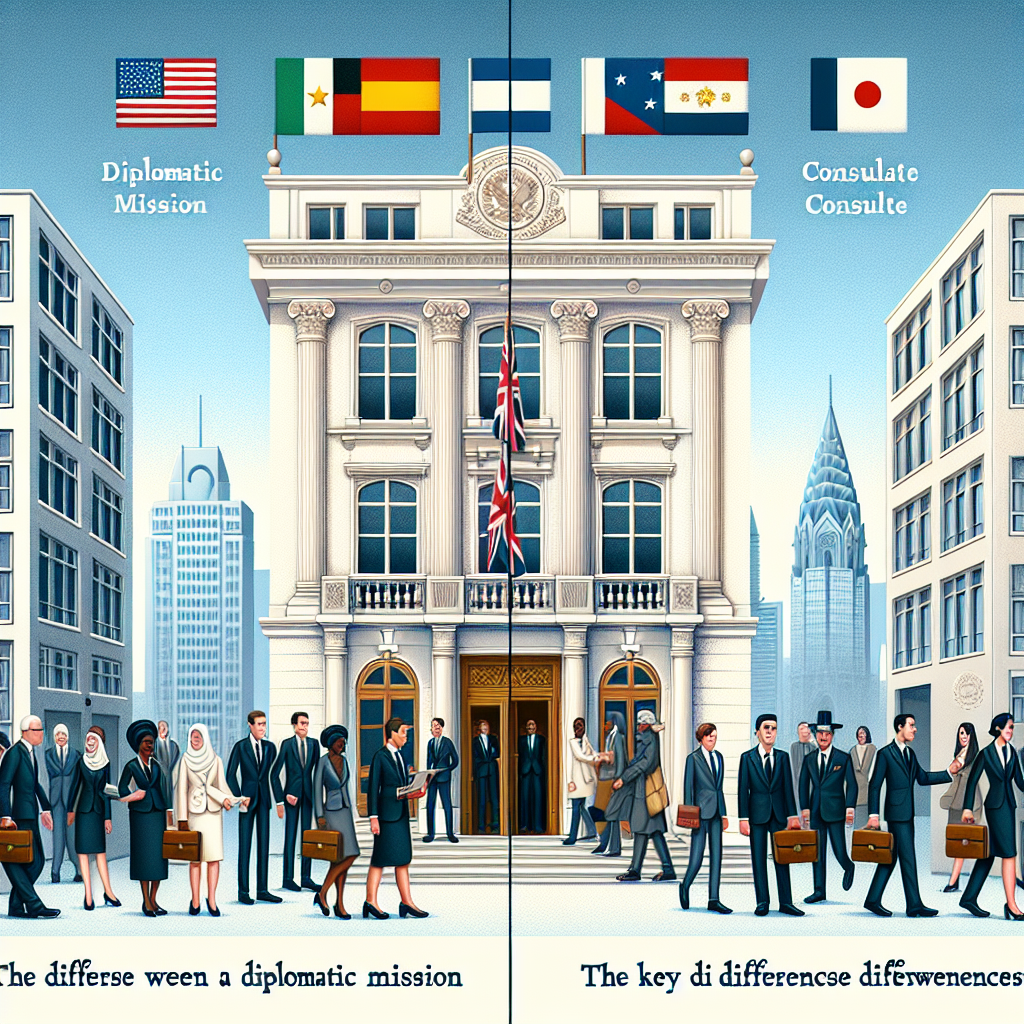In the arena of international relations, a range of institutions play a crucial role in maintaining dialogue and cooperation between different nations. Two such institutions are diplomatic missions and consulates. These two entities spearhead the efforts of a nation in a foreign country, serving as the official representation and carrying out various tasks. But, what is the difference between a diplomatic mission and a consulate? While they share some functions, their roles and responsibilities vary significantly. This article delves into the specific functions of a diplomatic mission and a consulate to highlight their differences.
Understanding Diplomatic Missions: Roles and Functions
A diplomatic mission, also known as an embassy, is the main representation of a country in a foreign land. The leader of the mission, typically known as the ambassador, is the primary representative of his/her home country to the host country. The primary purpose of a diplomatic mission is to facilitate diplomacy between the two countries. This includes activities like political negotiations, trade agreements, cultural exchanges, and safeguarding the interests of its expatriate citizens living in the host country.
Moreover, diplomatic missions are responsible for maintaining cordial relationships with the host nation and promoting their own nation’s interests. They act as the primary channel of official communication between the two nations. A key aspect of diplomatic missions is diplomatic immunity, which protects diplomats from the jurisdiction of the host country, further allowing them to carry out their duties without interference. However, it is important to note that this immunity can be waived by the diplomat’s own government if necessary. So, what is the difference between a diplomatic mission and a consulate in this regard? To answer this question, we need to first understand the role of a consulate.
The Consulate: Purpose and Responsibilities in International Relations
A consulate is a smaller diplomatic entity that operates under the umbrella of the diplomatic mission. It is generally located in major cities of the host nation but not necessarily in the capital where the embassy is usually located. The head of a consulate is called a consul. The primary function of a consulate involves safeguarding the interests of its citizens residing or traveling in the host nation.
Consulates handle matters related to personal documentation of their citizens abroad, such as issuing passports and visas, providing assistance during emergencies, and offering necessary services in legal, death, birth, marriage, and adoption matters. Unlike diplomatic missions, consulates do not have the authority to engage in political negotiations or high-level diplomatic talks. They also do not enjoy the full extent of diplomatic immunity that is provided to embassies. This is a key point when looking at the difference between a diplomatic mission and a consulate.
Summary
In conclusion, both diplomatic missions and consulates play significant roles in international relations, albeit with different emphasis and scope. While diplomatic missions focus on diplomacy and political relations, consulates are primarily concerned with providing services and assistance to their citizens abroad. Understanding the functions of these institutions is crucial to navigate the complexities of international relations and diplomacy. So, the next time someone asks, what is the difference between a diplomatic mission and a consulate, you’ll be well equipped to explain.
If you ever wondered the differences between Political Pardon and Political Amnesty, click here and discover.











